Heating you campervan : a simple guide to stay warm this winter.
From deluxe climate solutions to low-tech cosy, let’s get you warm this winter.
Are you a heating novice or a hardy vanlifer? Looking for budget-friendly heating hacks or high-tech climate solutions? Either way, there’s a warmth strategy just for you – and we’re gonna help you find it.
Here at Simple Vans, while we’re huge fans of the ‘less is more’ approach to camper conversions, we’re also huge fans of staying warm, dry and supremely cosy when Mama Nature is throwing everything she’s got at you.
But before we get too deep into the nitty-gritty, let’s have a think about purpose and use. Are you moving to the South Pole to study penguins, or is your campervan destined for summer weekend getaways? The first step in mastering your campervan’s climate is understanding where and how often you’ll be chasing those cozy vibes. Of course, if your budget is generous, you may opt for the Penguin-ready conversion anyway – it’s good to be prepared, right?
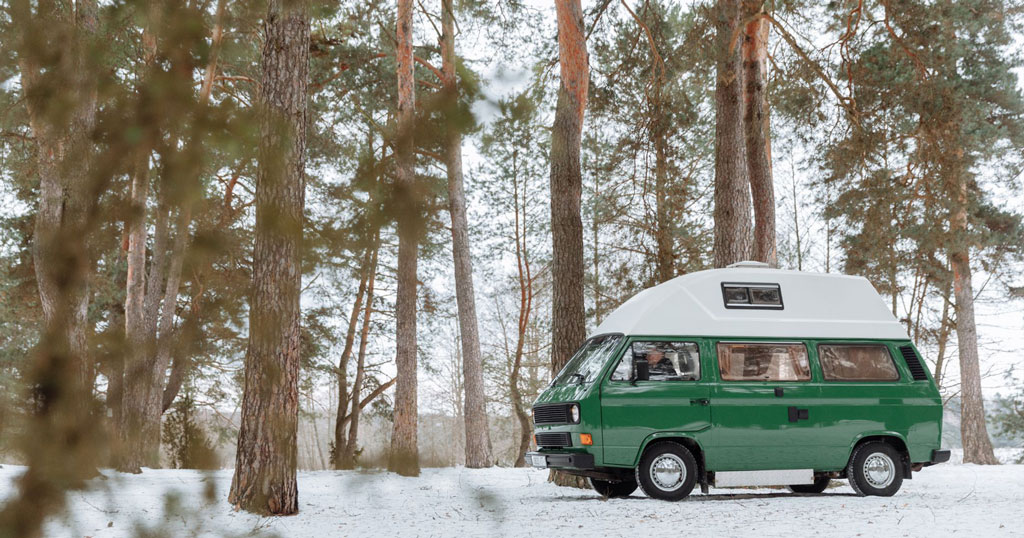
Insulation: Keeping the heat in
Insulation is the yin to the heating yang: with good insulation, your van will trap all the warmth of you and your cooking. Depending on where you travel, with decent insulation you may find you don’t even need to heat your van. Then again, going to the time, cost and trouble of insulating your van may not even be necessary at all if you’re using it for short trips in warm conditions.
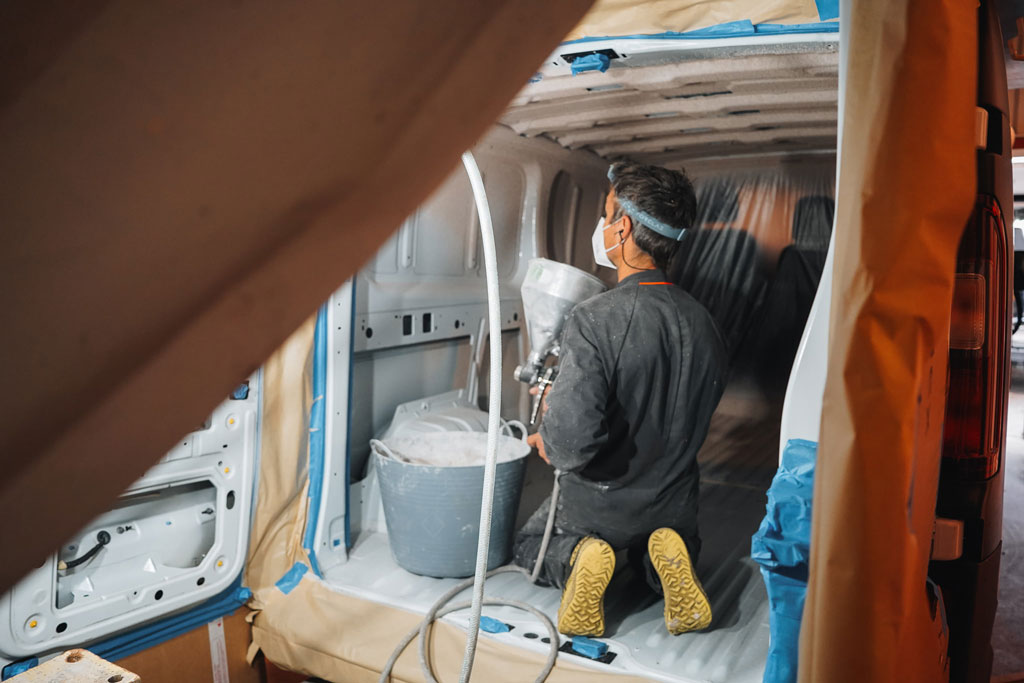
Heaters: the best options for all budgets
#1 - Diesel Heaters
Diesel heaters are the number 1 choice for campervans, known for their efficiency and ability to provide reliable warmth. These heaters operate on the vehicle’s diesel fuel supply, making them suitable for extended use during cold nights. Diesel heaters typically feature a compact design, making them easy to install in limited spaces. Their efficient fuel consumption and consistent heat output make them a go-to solution for many campervan enthusiasts seeking reliable heating.
A good diesel heating system from a leading brand like Eberspacher typically costs around 1500€ when professionally fitted. However, budget-conscious campervan owners often explore alternative options, and there are plenty of Chinese knock-offs priced at very low price . But we absolutely do not recommend these models as most of them are not approved to European standards and can prove to be very dangerous. We strongly advise opting for European-approved models, which may be more expensive, but are much safer in terms of security.
A word of warning: waste gases used for the combustion process are potentially deadly: for this reason we would always recommend buying a reputable brand and having it installed by a qualified professional!
Another word of warning: Even though diesel night heaters do have an excellent safety record, it is important to keep them well maintained and properly serviced. This work should be carried out by a trained technician.
Cost: €-€€€
The purchase, installation and servicing costs of a diesel heater will vary a lot depending on brand and who instals and maintains it. In terms of running costs, diesel heaters generally consume around 0.1 to 0.25 litres of diesel per hour, depending on the heat setting. Additionally, it’s essential to consider the electric use for the heater’s blower, which can range from 10 to 30 watts per hour.
Diesel heaters are very popular here in Europe because a) nearly all vans run on diesel and b) they work! That said, the purchase, installation and servicing costs can really add up, especially if you don’t spend a lot of time in cold climates.
#2 - Gas heaters
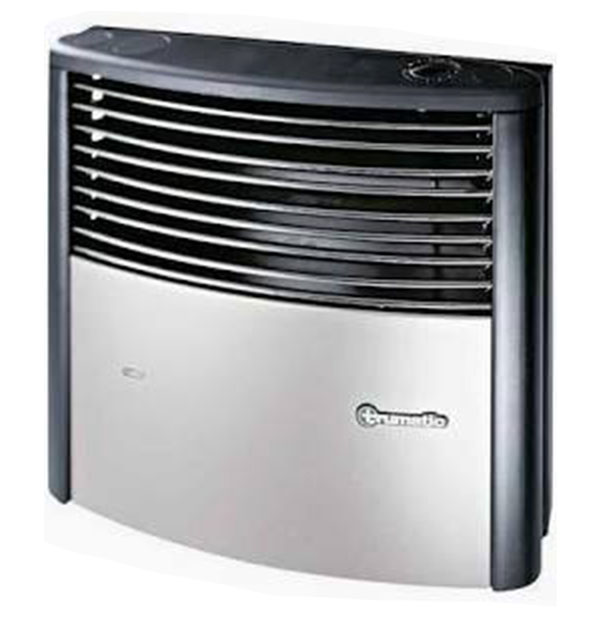
Heating with gas in a van provides an efficient and affordable solution (although the price of gas has increased significantly in recent months), but it does require careful space management, proper ventilation, and special attention to safety to ensure a warm and secure travel experience.
Advantages:
Gas heating systems for vans are often compact and portable, offering flexibility in installation and use. They also have high energy efficiency and quickly generate heat to warm the van space—particularly useful when you want to heat the space rapidly. One of the advantages of gas is its dual-purpose functionality, as it can also be used for cooking, providing a convenient 2-in-1 solution.
Disadvantages:
Space must be allocated for gas canister storage, which can quickly become a constraint in vans with limited space. While gas heating emissions remain minimal, proper ventilation of the van is crucial to avoid the risk of intoxication. The autonomy of the system depends on the quantity of gas carried, which may limit the duration of use or require regular replenishment, especially during long journeys
#3 - LPG/Natural Gas Heater: a bit like diesel heaters
LPG (liquefied petroleum gas) or natural gas heaters offer a gas-powered alternative to diesel heaters. They’re pretty similar in cost and performance, but require the installation of a pressurised gas container. This creates two added drawbacks over their diesel version – extra space for the container, and more hassle getting it refilled. We’d advise sticking with a diesel heater.
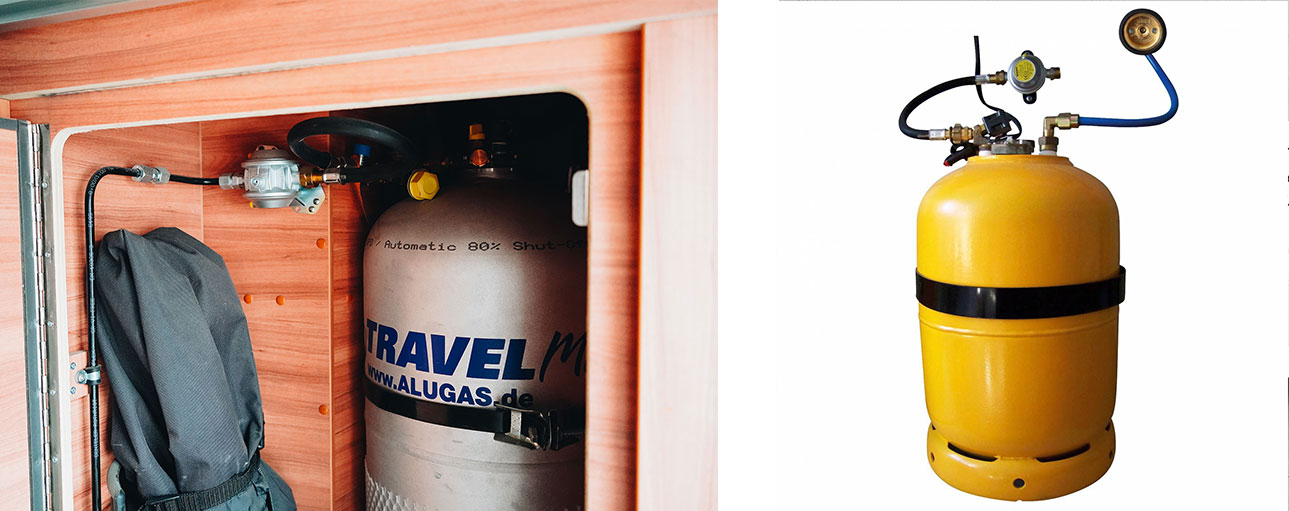
#4 - Electric Space Heater
What? Are we seriously recommending one of those fancy climate control systems for deluxe motorhomes with a giant rig of batteries?
Nope. We’re recommending one of those small, portable domestic electric heaters that you can pick up from any hardware store. Here’s why…
Instead of spending a fortune installing a system you’ll only use a couple of days a year, why not just bring along a heater from home, and hook it up to an external AC source? As well as campsites, many parking areas have them. Or, if you want to be truly energy independent – get a portable power station. These lithium battery packs can be charged up via AC hookup, 12v lighter socket or solar panel, and while it won’t keep your heater running for more than a couple of hours, it’ll be enough to get your van feeling cosy on a short trip.
Advantages:
If you’re not planning on spending a lot of time in cold places, a portable electric heater is a very simple and flexible solution that won’t break the bank. And, while power stations like the EcoFlow Delta don’t come cheap (€1200), they are super useful to have in a lot of different situations.
Disadvantages:
electric heaters are extremely power hungry. This isn’t a problem IF you can find an AC outlet, but if you’re planning on exploring cold, remote locations… get the diesel heater.
#5 - Sleeping Bag
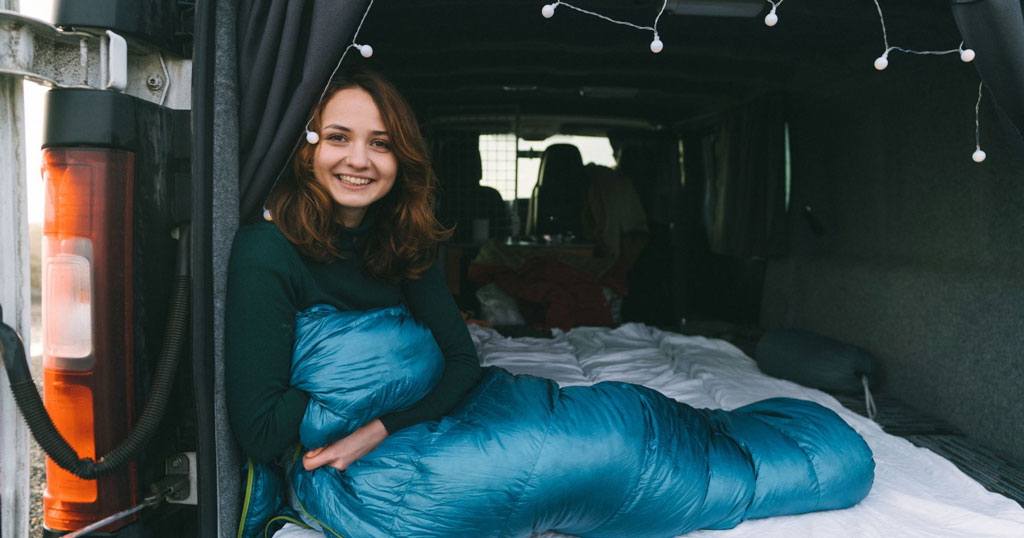
When all else fails, nothing beats trapping your own body heat. It’s the ultimate backup plan for those nights when your heater decides to take a break or your DIY insulation seems to have missed a spot. After all, a good sleeping bag is relatively cheap to buy, free to run and has only one moving part – the zip. What’s not to love? Sweet dreams, winter warriors!
Now that you know all the solutions to stay warm in your van this winter, which one will you choose?





